Originally written for the Landshare Blog way back in 2013, this was subsequently reposted in several locations and the information included went on to make up part of the talks I give to groups about growing vegetables Organically and using the No-Dig method. I thought you all may like to see what we did there.
Apologies for the quality of the pics!
Our no-dig veg garden 6 months in...
So, halfway through the year, ok a little
over but close and how is our No Dig system progressing? Some of you who
visited us in previous years will hopefully be pleasantly surprised at
how we’ve changed. We started converting our field over to 4ft wide beds
at the end of last year and putting in place a system of composting and
mulching them. This is how things looked in 2012…
Our team spent a lot of time getting the
beds converted, and there is still more work to do, but so far we really
are seeing the benefits. Working in this method allows you to grow veg
in a more consistent and easier to manage way. There are some crops that
at present we are not attempting, such as potatoes, carrots and
parsnips. We will grow these again in the future once we have built up a
decent soil depth but we are having some enormous successes with other
crops such as Kohl rabi, Onions and Leeks.
We also converted our tunnels over to the No
Dig system last year, the soil had become exceedingly depleted and had
no structure to it at all. We had started to find that even our Tomatoes
were struggling to produce decent vines, so copious amounts of manure
were added. Its worth bearing in mind when trying this yourself, that
not all crops love a high Nitrogen soil and that it can sometimes cause a
chemical imbalance, locking up certain nutrients like Magnesium. In a
covered environment this can be easily dealt with but when growing
organically its best to avoid overfeeding plants in the first place. We
planned our crop rotation very carefully to avoid problems and we are
getting great results despite the cold start to the year. Below is a
picture taken in late July 2011 showing how stressed our Tomatoes were.
We are proud to be harvesting from them already and the difference in growth is phenomenal!
We also are providing our onsite restaurant
with delicious organically grown Cucumbers, and this year we are growing
4 different types. In the cutest cucumber contest its a close run race
between Iznik F1 and Passander F1, producing a perfect Cucumber for your
lunch box! Or for something a little more substantial you might want to
try Louisa F1 or Camilla F1.
We have been having an enormously abundant
year for fruit as well. In late April I despaired that the weather would
improve and by late May I had almost given up, but it hasn’t done our
fruit any harm whatsoever. We have produced over 30 kilos of
Gooseberries alone, all to be cooked up into yummy desserts by our
Restaurant. Not to mention all the Strawberries, Redcurrants,
Blackcurrants and soon to be available from our Farmers Market stall,
Raspberries! Below is a picture of our Loganberries and in the distance
the North Downs.
One thing gardeners may want to keep an eye out for at this time of
year is Gooseberry Sawfly. Able to decimate your plants in a day, they
don’t just eat your Gooseberries they will go for your Red & White
currants too! Organically you have very few options open to you as they
must be dealt with quickly. The best and easiest option is to lay a old
sheet under your bush and shake/flick the leaves till the horrible
little blighters fall to the ground. When you think you’ve cleared one
area move the sheet to the next and repeat process. Here’s the grim bit,
once your plants are clean of the larvae and your sheet is covered in
them you can then deal with the pest in an appropriate manner. How you
choose to do this is up to you, but I suggest you don’t release them
back to freedom. I would normally expect them a tad earlier in the year
but it appears our unseasonable weather has knocked them out of kilter
too.I could include a Thousand more beautiful pictures of our lovely Veg. Garden as each one tells its own story but I run the risk of revealing my inner Nerd. Why not come and join us instead? See for yourself this unique venture into vegetable gardening and admire the best view in Kent …. well unless you climb to the top of the Tower that is.
Louise – Senior Vegetable Gardener
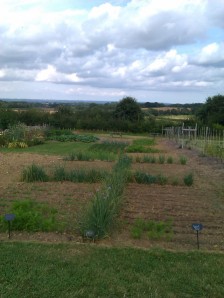
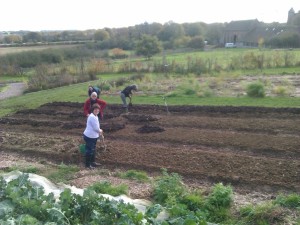

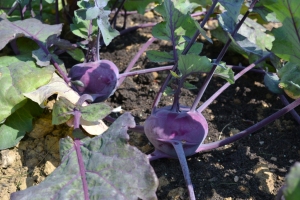
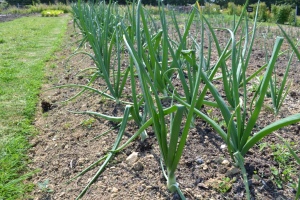
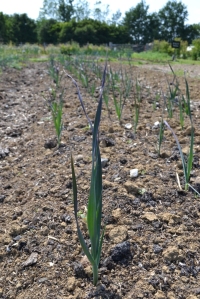
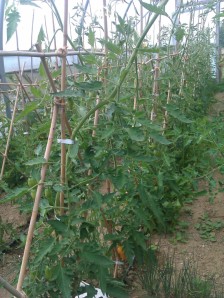
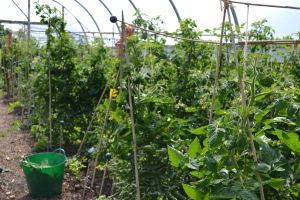
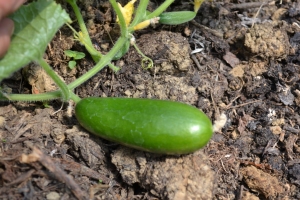
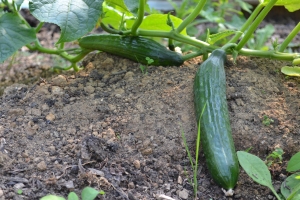
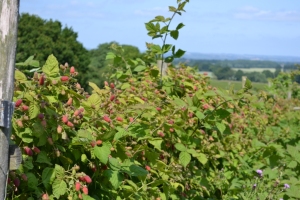
No comments:
Post a Comment